工程学硕士(电气工程)
Master of Engineering (Electrical Engineering)

学历文凭
Masters Degree (Coursework)

专业院系
STEM College

开学时间

课程时长

课程学费

国际学生入学条件
Successful completion of an Australian bachelor degree (or international equivalent) in one of the following fields: Computer Engineering, Electronics Engineering, Telecommunications Engineering, Electrical Engineering, Communication Engineering or Network Engineering with a GPA of at least 2.0 out of 4.0.
Applicants who have a successfully completed a relevant degree (as above) with a GPA of at least 1.5 out of 4, will be considered if they have at least 3 years of relevant industry experience.
OR
Successful completion of an Australian postgraduate qualification (or international equivalent) in a related discipline (as above).
OR
Applicants without any relevant prior qualification will be considered if they have at least 10 years of relevant industry experience.
To study this program you will need to complete one of the following English proficiency tests:
IELTS (Academic): minimum overall band of 6.5 (with no individual band below 6.0)
TOEFL (Internet Based Test - IBT): minimum overall score of 79 (with minimum of 13 in Reading, 12 in Listening, 18 in Speaking and 21 in Writing)
Pearson Test of English (Academic) (PTE (A)): minimum score of 58 (with no communication band less than 50)
Cambridge English: Advanced (CAE): minimum of 176 with no less than 169 in any component.
IDP—雅思考试联合主办方

雅思考试总分
6.5
- 雅思总分:6.5
- 托福网考总分:79
- 托福笔试总分:160
- 其他语言考试:Pearson Test of English (Academic) (PTE (A)): minimum score of 58 (with no communication band less than 50)
CRICOS代码: 079937J
申请截止日期: 请与IDP联系 以获取详细信息。
课程简介
The sectors of smart grid technology and renewable energy are experiencing rapid growth. As a result, the field of power engineering has a strong employment market, offering a range of opportunities to electrical engineers. This degree is suitable for both electrical engineering graduates looking for specialist knowledge in the latest power engineering technologies, as well as graduates from other disciplines seeking a career change. It covers such topics as: renewable energy, power electronic converter systems, high-voltage and protection systems, power transmission and distribution, building services, industry control and automation.You'll gain leading-edge knowledge and skills in power engineering with effective business skills in communication, teamwork and management.
相关申请
 预科
预科 奖学金
奖学金 实习机会
实习机会 在校学习
在校学习 跨境学习
跨境学习 校园授课-线上开始
校园授课-线上开始 在线/远程学习
在线/远程学习
开学时间&学费
学费信息仅供参考,请与IDP联系以获取详细信息
| 开学时间 | 时长 | 学费 | 地点 |
|---|
学校排名

世界排名401
数据源:
泰晤士高等教育世界大学排名
关于皇家墨尔本理工大学

皇家墨尔本理工大学 (RMIT) 是一所全球性的科技、设计和创业大学。它是世界前 150 名大学之一(QS 2026 年大学排名),以其在高等教育和应用研究领域的全球卓越成就而闻名。RMIT 的校园配备了世界最先进的技术和设施,为开展突破性研究提供所需的工具和专业知识。该大学是澳大利亚最大的大学之一,始建于1887年。它也是澳大利亚唯一一所可以使用''皇家''前缀的高等教育机构,曾获得伊丽莎白二世女王的赞助。该大学的主校区位于墨尔本市中心,墨尔本是全球第五大最佳学生城市(QS 2026年最佳学生城市)。RMIT在澳大利亚拥有三个校区和两个航空基地,在越南拥有两个校区,并在巴塞罗那设有一个产学研合作中心。该大学还与全球40多个国家的200所不同机构建立了合作伙伴关系。RMIT在全球排名第125位 (QS2026年排名),在减少不平等方面的努力方面位列全球第五位 ((2025年泰晤士高等教育影响力排名)。RMIT欢迎来自世界各地的学生,并为希望在大学学习并获得学位的学生提供广泛的交换项目。该大学专注于应用型学习,包括实践学习和行业学习。该大学与德勤、阿迪达斯和宝马等全球知名品牌合作,提供旨在确保学生毕业后做好充分准备,开启精彩职业生涯的课程。许多课程提供实习机会和实践体验。
本校相关课程

媒体与传播学士(荣誉学位)
学历文凭
Bachelor Degree with Honours
开学日期
课程费用总额

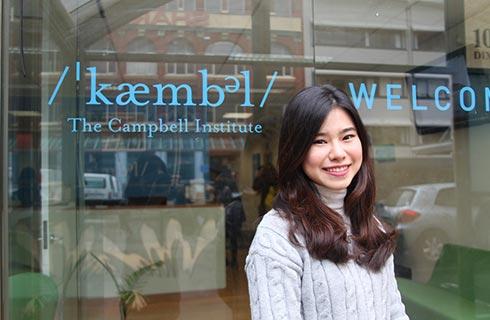
工程学硕士(电气和电子工程)
学历文凭
Masters Degree (Coursework)
开学日期
课程费用总额


生物医学学士
学历文凭
Bachelor Degree
开学日期
课程费用总额

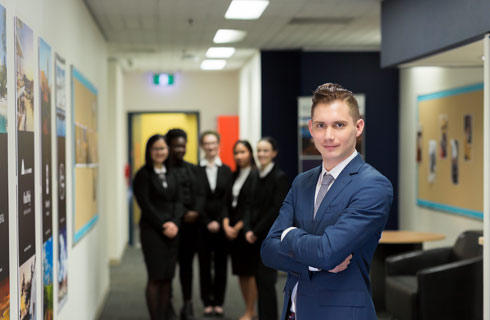
时装和纺织品销售副学士学位
学历文凭
Associate Degree
开学日期
课程费用总额

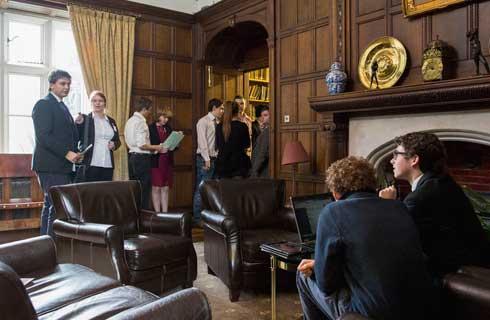
心理健康护理研究生文凭
学历文凭
Graduate Diploma
开学日期
课程费用总额


应用科学副学士
学历文凭
Associate Degree
开学日期
课程费用总额

其他相关课程

工程科学硕士(网络系统和电信)
 斯威本科技大学
斯威本科技大学泰晤士高等教育世界大学排名:282
学历文凭
Masters Degree (Coursework)
开学日期
课程费用总额


工程学硕士(电气和电子工程)
 皇家墨尔本理工大学
皇家墨尔本理工大学学历文凭
Masters Degree (Coursework)
开学日期
课程费用总额


工程学研究生文凭(电子)
 阿德莱德大学
阿德莱德大学学历文凭
Graduate Diploma
开学日期
课程费用总额

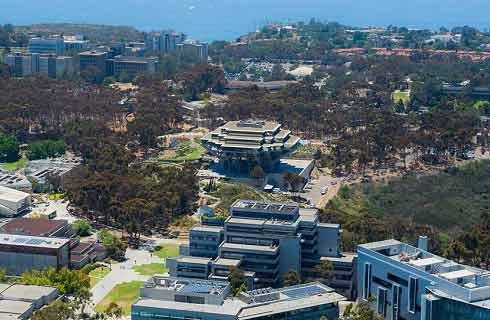
专业工程学硕士(电力)
 悉尼大学
悉尼大学泰晤士高等教育世界大学排名:54
学历文凭
Masters Degree (Coursework)
开学日期
课程费用总额

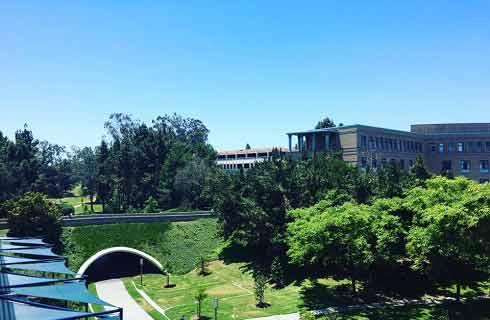
专业工程学硕士(电信)
 悉尼大学
悉尼大学泰晤士高等教育世界大学排名:54
学历文凭
Masters Degree (Coursework)
开学日期
课程费用总额


专业工程学硕士(电气)
 悉尼大学
悉尼大学泰晤士高等教育世界大学排名:54
学历文凭
Masters Degree (Coursework)
开学日期
课程费用总额










